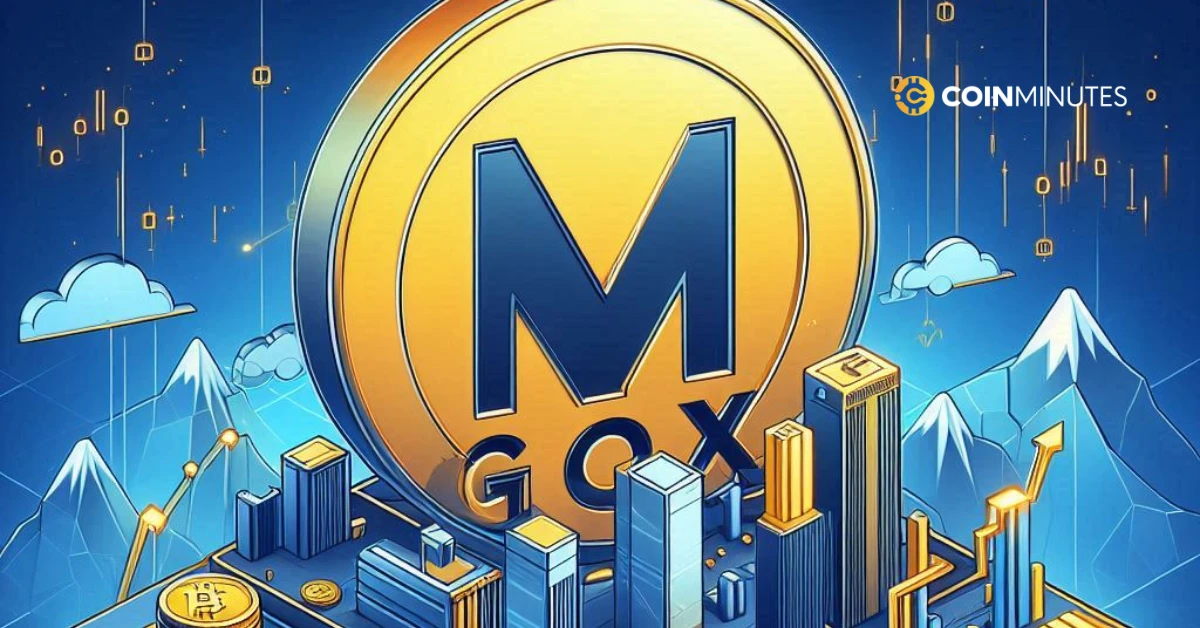Mt. Gox is considered the pioneering Bitcoin exchange and once dominated the cryptocurrency market, laying the groundwork for the development of transactions on subsequent Bitcoin exchanges. However, its collapse caused shockwaves in the industry for various reasons. Let’s explore information about Mt. Gox through the following article with CoinMinutes!
Key Takeaways
|
What Is Mt. Gox?
Mt. Gox was a cryptocurrency exchange established and operational in July 2010, based in Tokyo. It was once the world’s largest Bitcoin exchange platform but collapsed in 2014 due to massive losses of Bitcoin caused by hacking and poor management. At its peak, it was responsible for over 70% of Bitcoin transactions.
The Founding of Mt. Gox
Mt. Gox started with a completely different purpose compared to its later role in the cryptocurrency world. Initially, it was established in 2007 by Jed McCaleb as “Magic: The Gathering Online Exchange” (MTGOX), a platform for players to buy and sell virtual “Magic: The Gathering” cards.
However, upon recognizing the immense potential of Bitcoin in 2010, McCaleb decided to transform MTGOX into a Bitcoin exchange. The platform quickly gained attention and became the world’s largest Bitcoin trading center.
In 2011, McCaleb sold Mt. Gox to Mark Karpelès, a French programmer. Subsequently, the headquarters of the exchange were moved to Tokyo, Japan marking the beginning of a new chapter in Mt. Gox’s history.
Growth and Peak
After just one year of operation, Mt.Gox processed over 70% of the total global bitcoin (BTC) transactions and quickly emerged as the largest bitcoin exchange hub in the world at that time.
Its resounding success was driven by the increasing demand for Bitcoin, high liquidity, and user-friendly interface. Mt. Gox promised to become a vital part of the digital economy, expected to play a key role in promoting the adoption of Bitcoin and other cryptocurrencies worldwide.
Security Breaches and Operational Issues
Mt. Gox faced numerous security issues from its early days including software vulnerabilities and frequent cyber attacks. In June 2011, a major security breach led to the theft of 25,000 Bitcoin, shocking the cryptocurrency community and exposing deficiencies in Mt. Gox’s security system.
The attacker used compromised login information to access and steal funds from Mt. Gox’s Bitcoin wallet. The main reason for this breach was that Mt. Gox stored Bitcoin in a hot wallet and connected it directly to the internet, making it more vulnerable to attacks compared to cold wallets stored offline.
The security issues and operational shortcomings of Mt. Gox created conditions for cyber attacks and led to the loss of users’ Bitcoin. These events undermined trust in the platform, contributing to the eventual collapse of Mt. Gox.
The 2014 Collapse
In early 2014, Mt. Gox began experiencing liquidity issues, leading to customer concerns about delayed and unfulfilled Bitcoin withdrawals. These problems stemmed from various factors including high transaction volumes, faulty payment processing systems, and banking issues.
Due to escalating payment difficulties, Mt. Gox had to temporarily halt Bitcoin withdrawals in February 2014. This action caused turmoil within the cryptocurrency community and led to a sharp decline in the value of Bitcoin.
In August 2014, Mt. Gox officially declared bankruptcy with an estimated debt of $64 million. The primary reason for the bankruptcy was the loss of 850,000 Bitcoin, equivalent to around $450 million at the time.
Investigations and Aftermath
After declaring bankruptcy, Mt. Gox became the focus of numerous investigations by law enforcement agencies and financial regulators in Japan and the United States. These investigations focused on the reasons for the loss of Bitcoin, potential misconduct and the responsibilities of individuals and organizations involved.
Over the years, there have been several efforts to recover lost Bitcoin from Mt. Gox. In 2017, a group of investors known as the Mt. Gox Creditors Group acquired Mt. Gox’s assets in hopes of recovering Bitcoin for creditors. This group initiated lawsuits and other efforts to recover assets but progress has been limited.
As of now, some Mt. Gox creditors have received compensation on Reddit, marking the 10th anniversary of the exchange’s collapse. Many screenshots from Mt. Gox creditors show fiat currency repayments labeled as completed. In addition to the fiat compensation, many Mt. Gox creditors have reported that the trustee has provided further updates, including the amount of Bitcoin and Bitcoin Cash to be repaid on the system’s designated date, with expectations of completion within this year.
Impact on the Cryptocurrency Market
The collapse of Mt. Gox has led to significant ramifications in the cryptocurrency landscape. Some of the impacts include:
- Loss of Trust and Diminished Value: Mt. Gox’s failure shattered trust within the cryptocurrency community. Users and investors became cautious of other exchanges, leading to increased scrutiny of security measures and practices.
- Enhanced Regulation: Following the Mt. Gox incident, regulatory agencies worldwide tightened supervision of cryptocurrency exchanges. This led to the introduction of stricter regulations aimed at protecting investors and preventing similar incidents in the future.
- Market Volatility: The collapse of Mt. Gox significantly contributed to volatility in the prices of Bitcoin and other cryptocurrencies. The uncertainty surrounding the fate of Mt. Gox’s assets and its potential impact on the market led to price fluctuations.
- Rise of New Exchanges: The downfall of Mt. Gox created opportunities for new exchanges to emerge. These exchanges focus on enhancing reputation, ensuring cybersecurity, and providing better services to users.
Lessons Learned from Mt. Gox
The collapse of the Mt. Gox exchange serves as a valuable lesson for other cryptocurrency exchanges.
- Security is Paramount: Mt. Gox suffered from lax security practices, which allowed hackers to exploit vulnerabilities and steal hundreds of millions of dollars worth of Bitcoin. The importance of robust security measures, including cold storage solutions and multi-factor authentication, cannot be overstated in the cryptocurrency space.
- Transparency and Accountability: Mt. Gox’s lack of transparency regarding its financial health and the loss of customer funds eroded trust in the exchange and the broader cryptocurrency ecosystem. Transparency, regular audits, and clear communication with users are essential for maintaining trust and credibility.
- Regulatory Compliance Matters: Mt. Gox operated in a regulatory gray area, which contributed to its downfall. The incident highlighted the importance of complying with relevant regulations and working closely with regulatory authorities to ensure legal compliance and protect customers’ interests.
- Risk Management is Key: Mt. Gox’s failure to adequately manage operational and financial risks led to catastrophic consequences. Cryptocurrency exchanges must implement robust risk management practices, including proper fund management, contingency planning, and adherence to industry best practices.
- User Education and Awareness: Many users of Mt. Gox were unaware of the risks associated with leaving their funds on an exchange. The incident underscored the need for user education on topics such as wallet security, private key management, and the risks of centralized exchanges.
- Diversification is Prudent: Investors learned the hard way about the dangers of placing all their cryptocurrency holdings on a single exchange. Diversifying holdings across multiple platforms and assets can help mitigate the impact of exchange failures and security breaches.
The Bottom Line
The story of Mt. Gox serves as a warning in the cryptocurrency realm. Its rise and subsequent collapse underscore the importance of robust security measures and responsible management in safeguarding digital assets. Mt. Gox’s legacy reminds us of the necessity to remain vigilant and continually improve to ensure the stability and trustworthiness of cryptocurrency exchanges.






